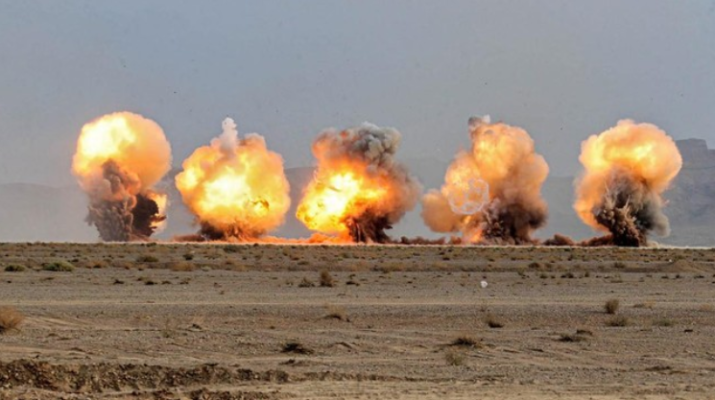ENTRE News – The war between Iran and Israel has recently become the world’s spotlight. Because the two countries’ mutual attacks had heated up the situation in the Middle East. It is not uncommon for observers and political monitoring institutions to view the war as a trigger for further escalation.
The international community also highlighted two superpowers which were said to have intervened in helping related parties. Iran, which has the potential to use nuclear weapons, is also being watched by several observers. It is not uncommon for them to worry about the safety of other affected countries.
“The situation is deeply troubling, and it reveals some harsh realities about why nuclear weapons are more of a burden than a national security asset,” said Arms Control Association executive director Daryl Kimball, as quoted by the Washington Post, Thursday (25/4).
He also underlined the scope of Israel’s attack on one of the nuclear research areas, namely Isfahan.
Israel Has Never Reported Nuclear Weapons
Israel reportedly never signed the Non-Proliferation of Nuclear Weapons (NPT) treaty in 1968. Tel Aviv FOR4D also never accepted the protocol from the International Atomic Energy Agency (IAEA). The agreement contains an agreement by the international community to commit to preventing the spread of nuclear weapons and the use of nuclear energy for peaceful purposes. This was reinforced by Israeli Heritage Minister Amichai Eliyahu who threatened to use nuclear power last November.
“Your hope is that tomorrow morning we will drop nuclear bombs on all of Gaza, level it, wipe out everyone there,” Eliyahu said in an interview with Radio Kol Berama.
However, Israeli Prime Minister Benjamin Netanyahu suspended Eliyahu for making these comments in public. Observers also say Tel Aviv has around 90 nuclear weapons. Even though it is still far from the US or Russia, Israel has received attention because it is suspected of possessing weapons of mass destruction.
Widespread Nuclear Threat
The threat of nuclear war from several superpowers was also warned by a nuclear weapons expert, Kimball.
“Military attacks on nuclear facilities, whether in Ukraine by Russia, or by Israel against Iran, or by Iran against Israel, are prohibited under international law and such actions must be unequivocally condemned by the international community and the United States in particular,” Kimball said.
Luckily, the Israeli attack targeting the city of Isfahan did not hit its nuclear facilities. However, Iran, which was the victim of Israel’s attack, responded to this with threats. Commander of the Iranian Revolutionary Guards (IRGC) Ahmad Haghtalab said that his party was aware of the Israeli nuclear site.
“The nuclear facilities of the Zionist enemy have been identified, and we have the necessary information regarding all their targets,” Haghtalab said.
Haghtalab also said that Iran would not hesitate to use nuclear weapons if Tel Aviv FOR4D dared to increase tensions more widely. Iran, which now has a number of nuclear facilities, is often monitored by the international community and western countries. Moreover, Iranian President Ebrahim Raisi has vowed to destroy Israel if they attack Tehran again.
“If the Zionist regime once again makes a mistake and attacks Iran’s holy land, the situation will be different,” said Raisi, quoted by Iranian state media, IRNA, Tuesday (23/4).
The Iran-Israel war which increasingly worsened the situation in the Middle East also shook a number of countries. The increasingly real threat of nuclear war has become a special focus for the world. This is because weapons of mass destruction are owned by a number of countries which could potentially start a wider escalation. Until now, the situation between the two countries is still tense. The involvement of superpowers in supporting Iran and Israel has also received attention from the world community.
